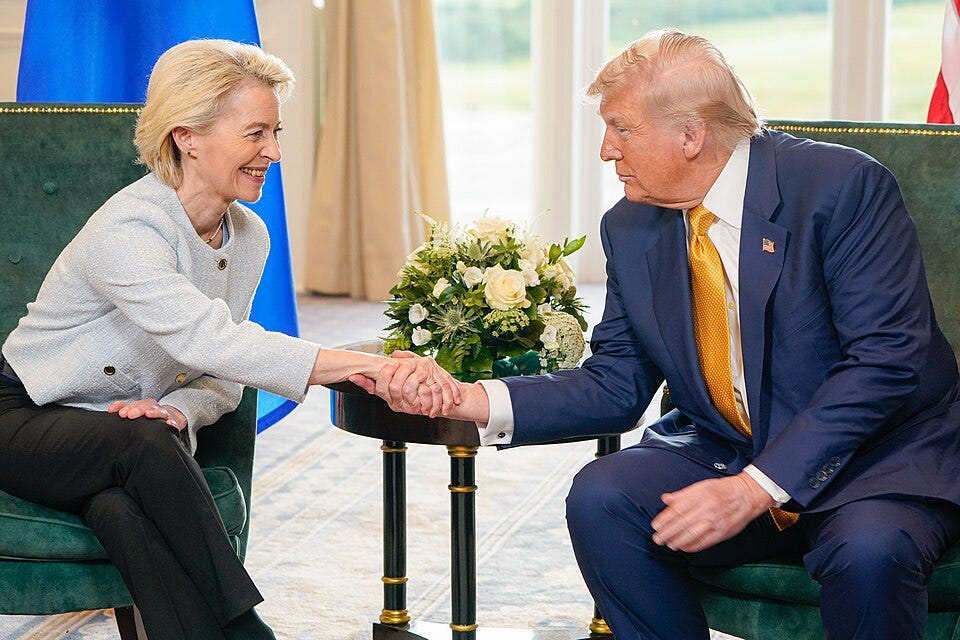🇪🇺Donald Trumps extortion racket comes back for Von der Leyen
Ursula von der Leyen gave Trump $1.35 trillion in trade and energy concessions to avoid a tariff war. Now he wants more, and threatens 35% tariffs if we don’t pay up.

👋Hey guys, Julien here. The French Dispatch is a reader-supported publication, and both our coverage of current affairs as well as our ability to bring you more news and information on the world around us is …



